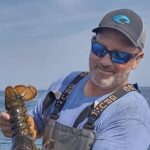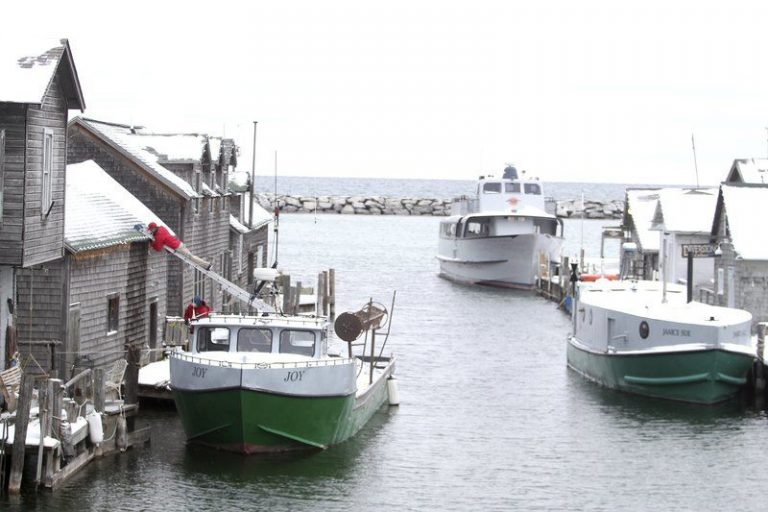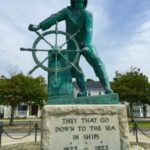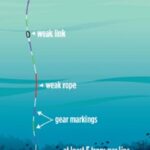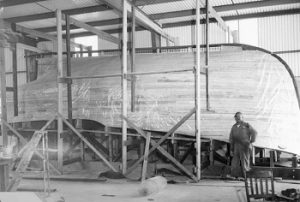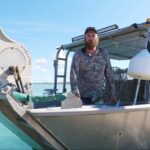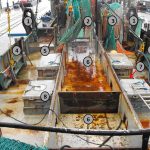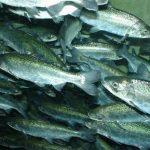Tag Archives: COVID-19
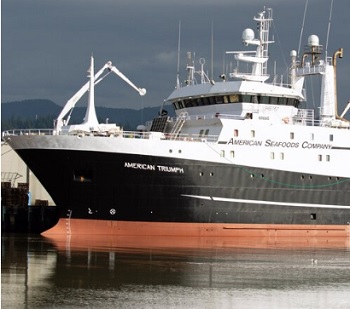
Coronavirus outbreaks keep sidelining vessels owned by one of Seattle’s largest fishing companies. No one’s entirely sure why.
It’s not surprising that fishing vessels would become potentially high-risk environments as the pandemic worsened. Like cruise ships, which became notorious Covid-19 hotspots in the early days of the outbreak, fishing trawlers tend to confine people in close quarters for prolonged periods of time. But several additional factors make fishing vessels susceptible to outbreaks: Living arrangements require people to cram into tight spaces together, sharing bunkrooms, dining areas, toilets, and other facilities. “These people are four to a room,” said Dr. Marisa D’Angeli,“They’re in bunk beds. They share a bathroom with the four people [in the] adjacent [room]—so eight people total. People don’t wear a mask when they sleep.” The work environment, which requires people to work closely together in wet, chaotic circumstances, is no less fraught with transmission opportunities. >click to read< 08:08
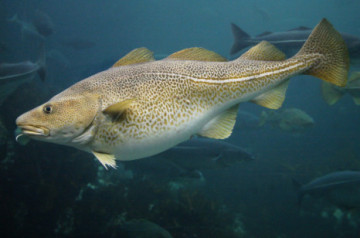
Icelandic Cod Spray Bodes Well Against Coronavirus
While several countries across the globe are vying to create a vaccine against COVID-19, Iceland, a nation of fishermen, has come up with a possible solution of its own. PreCold, a mouth spray intended to be used against the first symptoms of a cold based on cod enzymes, has proven efficient during tests and managed to deactivate about 98.3% of the virus that causes COVID-19, national broadcaster RÚV reported. The spray creates a protective film in the pharynx where the viruses that cause the common cold tend to localise and replicate. The film using enzymes extracted from cod offal, weakens viruses so they fail to replicate to a degree that makes the host sick. >click to read< 07:27
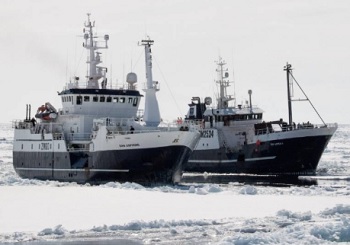
Coronavirus: 50-day mission to retrieve Kiwi fishermen underway
Sanford deep water fleet manager Darryn Shaw said the trip to the South Georgia Islands had been made necessary due to the impacts of Covid-19, which had made it difficult to get people out of the Falkland Islands, with just one flight a week going to the United Kingdom. “Normally we would bring our people back by air, via South America, but that is not possible at this time with borders closed into that region. We did look at bringing them home via the UK, but that was going to put them at risk of actually being exposed to Covid-19 as they would have to fly into the UK and move about between airports.” Many of the crew, who are fishing for toothfish, had already been at sea for 130 days – missing the entire Covid-19 lockdown – and were eager to get home to their families, Shaw said. >click to read< 12:02
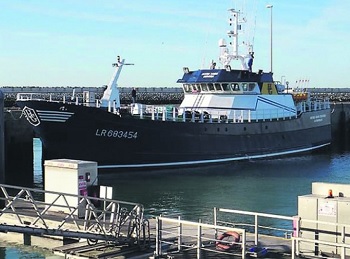
Concern as trawler crew get Covid-19
The crew on board a Spanish trawler that landed fish in Castletownbere have tested positive for Covid-19, prompting major concerns for the safety of the community, and supply lines to Europe. Six crew and the skipper have been confirmed as having the virus since returning from landing their catch in the West Cork port on April 21st. It’s also believed that another crew member who had felt sick en route from Spain, has tested positive for the antibodies, showing he had the virus, but has recovered. The skipper of the ship informed Spanish authorities that none of the crew went ashore in Castletownbere. However, head of the Castletownbere-based Irish South and West Fish Producers Organisation, Patrick Murphy, said the situation raised a major red flag,,, >click to read< 17:34
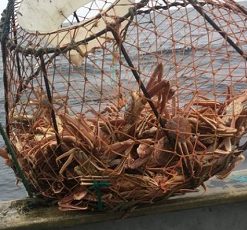
FFAW, processors remain at odds on opening Newfoundland and Labrador crab season
It remains to be seen whether harvesters in the province will eventually start fishing for crab and offloading it at plants for processing. According to the Fish, Food and Allied Workers (FFAW-Unifor), two vessels from outside the province were turned away in Port Aux Basques and denied the opportunity to offload crab as of Monday morning, and three transport trucks carrying crab harvested outside the province were being blocked from making deliveries to fish plants, two in South Brook and one at Goobies. “The fishery was postponed three times on health and safety issues,” Pretty said. “During that time, the bargaining for the price of crab should have progressed, but instead of progressing,,, >click to read< 19:46
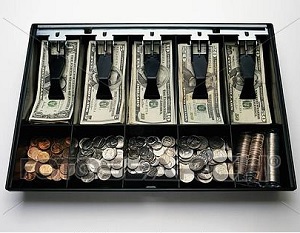
Alaska: Reopening of state economy begins
Restaurants, shops and hair salons around Alaska are beginning a cautious reopening under strict state mandates as Alaska works to inhibit the spread of COVID-19, while the economic reopening remains on hold in Cordova. Emergency order 2020-05, issued by City Manager Helen Howarth, reinstates business restrictions lifted by the state on April 24 until May 20. Independent commercial fishermen meanwhile now have their COVID-19 marching orders from state officials, a list of protective measures, procedures, travel and access measures they must abide by, as the influx of seafood workers begins in Cordova. >click to read< 10:25
Strict new pandemic rules are in place for Alaska fishermen and their vessels – >click to read<
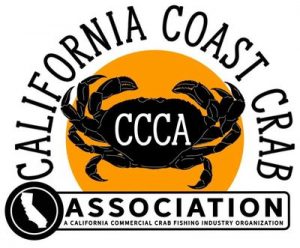
Dungeness Crab Season Closed Early Due to Dubious Whale Crisis, COVID-19 Economic Impact on Coastal Communities Made Worse by Closure
The California Department of Fish and Wildlife (CDFW) today announced that effective May 15, 2020, the commercial Dungeness crab fishing season, which began in December, will be closed due to the perceived risk of commercial crab fishing gear harming migratory whales. Ironically, as a result of ongoing cooperative measures between the California Dungeness crab fishing fleet and CDFW, interactions between Dungeness crab fishing gear and the two subgroups of Humpback whales, or Distinct Population Segments (DPS), which are “endangered” and “threatened” under the Endangered Species Act (ESA) are extremely rare. “The risk of crab fishing gear harming endangered whales is statistically insignificant because of low concentrations of whale, as well as the relatively small amounts of gear being deployed along the Central California coast,” said Ben Platt, president of the California Coast Crab Association (CCCA). >click to read< 12:26
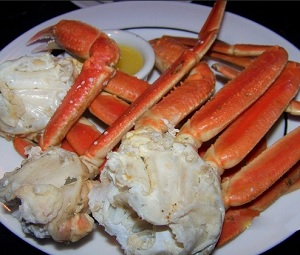
Fake News claim: Coronavirus has been found in crab legs
Social media users have been sharing an image online that purports to be a screen grab of a news report claiming that the coronavirus has been found in crab legs. Examples can be seen here and here. The screen grab image appears to have been created with an application called “News Maker – Create The News.” It is available on the Apple App Store and provides different options for styles and fake news station names.,, Both the U.S. Food and Drug Administration and the Centers for Disease Control say food is not connected to coronavirus transmission,, >click to read< 13:37
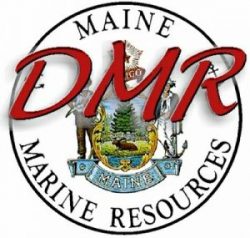
Coronavirus: Maine DMR To Open Elver Fishery After Implementing COVID-19 Protections
After ensuring protocols are in place to protect fishermen, dealers and communities from the spread of COVID-19, the Maine Department of Marine Resources will open the elver season at 8 a.m. on Monday, March 30, 2020. Under the authority established by Governor Janet Mills’ March 15 Civil Emergency Proclamation, licensed elver harvesters may fish for and sell the quota of another licensed harvester. Dealers have also agreed to limit transactions significantly by only buying 1 pound or more of elvers. >click to read< 12:12
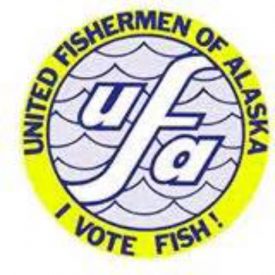
Coronavirus: Dear UFA Members and Friends, people arriving in Alaska are required to self-quarantine
As we all try to understand the magnitude of Covid-19, UFA is closely monitoring the evolving situation. We are actively engaged on the issue at the state and federal level and we will continue to provide you with information as soon as we get it. Last night, Governor Dunleavy issued a Health Mandate for the State of Alaska. All people arriving in Alaska, whether resident, worker or visitor, are required to self-quarantine for 14 days and monitor for illness. Arriving residents and workers in self-quarantine, should work from home, unless you support critical infrastructure (see Attachment A). (Food and agriculture, company cafeterias, cultivation, including farming, livestock, and fishing;) >click to read, links< 17:45
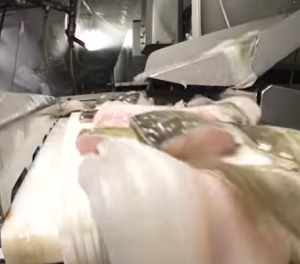
Coronavirus: Seafood processors respond to COVID-19 with added precautions
Seafood industry processors say they are in ongoing discussions with local, state and federal partners,,, The seafood industry talking points including working around the clock on prevention and response, coordinating with partners that include public health officials, preventing the spread of COVID-19 within Alaska and keeping seafood safe, said Stephanie Madsen, executive director of the At-Sea Processors Association. The Seattle-based trade association represents six member companies who own and operate 16 U.S. flagged catcher/processor vessels participating principally in the Alaska Pollock fishery and West Coast Pacific whiting fishery. The group includes American Seafoods Co., Arctic Storm Management Group LLC, Coastal Villages Region Fund, Glacier Fish Company LLC, Aleutian Spray Fisheries Inc. and Trident Seafoods. >click to read< 20:56
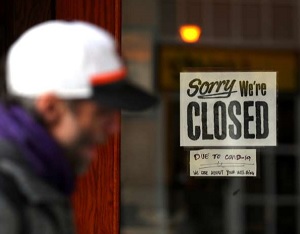
Coronavirus: Flattening the economy to control COVID-19 will have limited benefits at high costs
In 2016, U.S. economist Larry Summers, commenting on the release of a report titled The Neglected Dimension of Global Security: A Framework to Counter Infectious Disease Crises, said that “relative to its significance, there is no issue that gets less attention” than the risk of pandemics and epidemics.,, scrambling to catch up, the political authorities at the UN’s World Health Organization (WHO) and in towers of power around the world who underplayed the pandemic risk are engaging in a giant social and economic experiment: the temporary shutdown of the $100-trillion world economy to fix a real looming crisis they long ignored. And it is an experiment. Governments around the world are using the global economy as a test tube for science and behaviour theories that the COVID-19 pandemic can perhaps be managed and controlled by imposing draconian limits on most economic activity. >click to read< 13:31
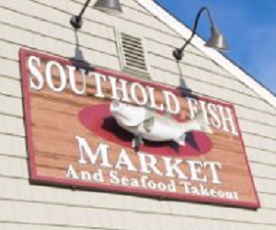
Coronavirus: Long Island Wholesale fish prices drop as restaurants cut back
The wholesale price for lobsters, normally anywhere from $12 to $15 a pound this time of year, have fallen under $8, dealers say. Other normally pricey fish such as tuna and swordfish are also taking a dive, as restaurants in New York City cut back,, If there’s any silver lining right now, said Nino Locascio, co-owner of Mastic Seafood in Mastic, it’s the walk-in retail market in Suffolk, where business has remained brisk. He also sells wholesale to local restaurants, and that business is down “dramatically,” he said. >click to read< 16:29
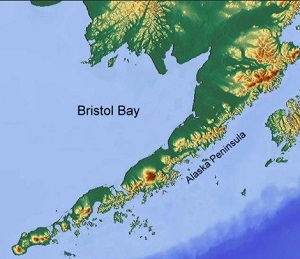
In America’s largest salmon fishery, preparations begin for coronavirus prevention ahead of the season
Around Bristol Bay, community leaders, health facilities and local entities are working to coordinate their preparations for the coronavirus. Thousands of fishermen, processors, and cannery workers will travel to Bristol Bay in the coming months to participate in the commercial fishery. As of Thursday afternoon, no one in the region had been tested for COVID-19, the disease caused by the coronavirus. Alaska’s first known case of the disease was announced Thursday afternoon. >click to read< 11:26
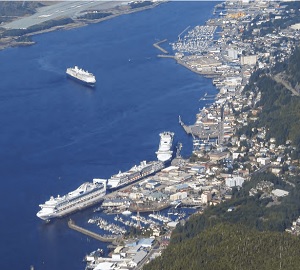
Coronavirus: Perfect storm?
What no one could foresee when the sun rose in Utqiagvik (formerly Barrow) on Jan. 23 and everything seemed so normal was that the planet was already hurtling toward a global economic slowdown with possibly devastating repercussions for a fragile, Alaska economy dependent on oil, tourism, fisheries and the state Permanent Fund – all now suffering the fallout from the consequences of an invisible, contagious and too-often-deadly pathogen. A month before that sunrise, with Utqiagvik still cloaked in darkness, a new coronavirus spawned no one knows exactly where was already spreading in Wuhan, China far to the south and west. more, >click to read< 15:09
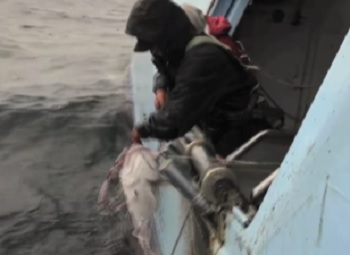
Coronavirus outbreak has Alaska fishing fleets on guard
“The protocols on cleaning and how to prevent a virus are already part of the procedures that we follow,” said Chad See, executive director of the Freezer Longline Coalition. “But the sense was that this is an issue we need to be on top of.”On the large vessels that catch and process seafood, dozens of crew members may be employed to work in remote areas of the Bering Sea and Gulf of Alaska. While at sea, the crews’ isolation shields them from a virus spreading on shore. But crew shifts bring new people on board, and could allow for the spread of the virus to a vessel. more >click to read< 12:04
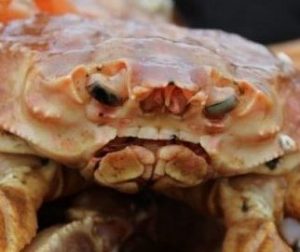
Coronavirus: Snow crab fishery worries outbreak could be bad for business
Next to the lobster industry, snow crab is the biggest fishing industry in the province, as millions of dollars worth of New Brunswick snow crab is sold internationally. About 85 per cent of snow crab products are sold to U.S. markets, particularly casinos, restaurants, and all-you-can-eat buffets, popular in states like Florida, Georgia and Maryland. The New Brunswick delicacy is also popular on cruise ships.,, The industry won’t know what kind of impact the virus will have on the fishery until the season starts in April. more >click to read< 10:35
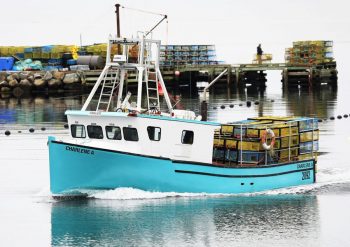
Coronavirus: Reverberations from COVID-19 reach Canada’s East Coast and its lobster fishery
Lobster fishermen, like Fralick, are facing a crunch. In the last month, the coronavirus epidemic in China has precipitated a drop in lobster prices. “It dropped from $10.50 all the way down to $6, and now it’s back up to $7,” says Fralick. “That takes all the profit out of it.” Quarantines and lack of restaurant traffic has slowed lobster demand from China. Customer orders have dried up. As a result, fewer cargo planes are making the trip. >click to read< 07:54

































